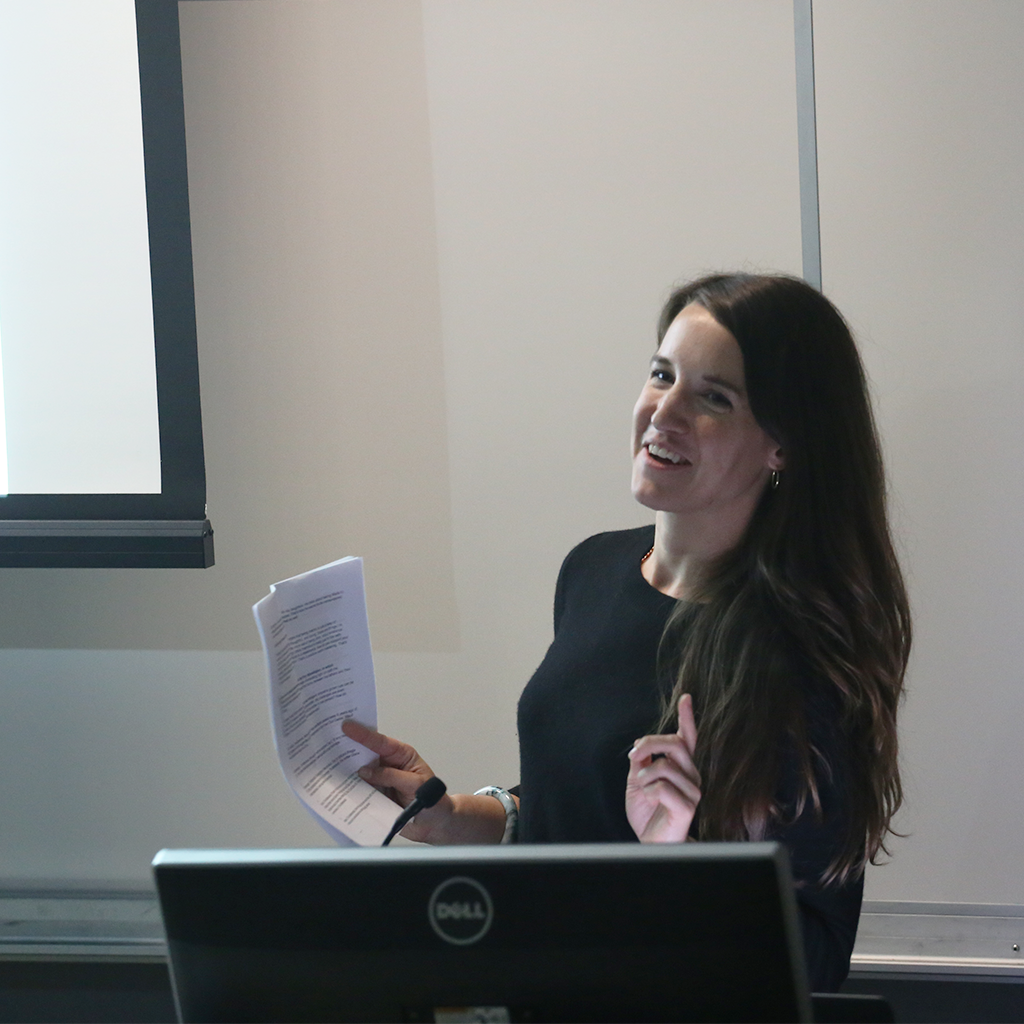Nichole Sobecki, photographer and filmmaker
 Nichole Sobecki (A’09) is a photographer and filmmaker based in Nairobi, Kenya. She is an alumna of IGL programs – EPIIC 2006 The Politics of Fear, Exposure – Human Rights and Photojournalism 2005-09 – and was an adviser to the IGL’s Program for Narrative and Documentary Practice. She is represented internationally by VII Photo Agency.
Nichole Sobecki (A’09) is a photographer and filmmaker based in Nairobi, Kenya. She is an alumna of IGL programs – EPIIC 2006 The Politics of Fear, Exposure – Human Rights and Photojournalism 2005-09 – and was an adviser to the IGL’s Program for Narrative and Documentary Practice. She is represented internationally by VII Photo Agency.
Nichole graduated from Tufts University and began her career in Turkey, Lebanon, and Syria, focusing on regional issues related to identity, conflict, and human rights.
From 2012-2015, Nichole led Agence France-Presse’s East Africa video bureau, and was a Rory Peck Awards News Finalist for her coverage of the Westgate mall attacks in Kenya. In 2018, she was awarded the Robert F. Kennedy Human Rights Prize in new media for her images documenting Europe’s response to the African migration crisis. Nichole's work has been recognized by Pictures of the Year, the One World Media Awards, the Alexandra Boulat Award for Photojournalism, The Magenta Foundation, and The Jacob Burns Film Center, among others.
She is a contributor to Everyday Africa, a collection of images shot on mobile phones across the continent, and an attempt to showcase the moments missing from dramatic news images — everyday life that is neither idealized nor debased. She is a passionate teacher, workshop leader and speaker.
She has completed assignments throughout Africa, the Middle East and Asia for National Geographic, The Washington Post, The Wall Street Journal, The New York Times, Newsweek, Time, Foreign Policy, The Financial Times Magazine, The Guardian, and Le Monde, and her work has been exhibited internationally.
On September 18, Nichole will be featured in Tuft’s “Tell Me More” (https://tuftsmagazine.com/podcasts/tell-me-more) podcast, recorded when the IGL invited her to speak at Tufts, with her colleagues, on their ongoing project on “Her Take: Rethinking Masculinity” by the women of VII.
While on assignment, she answered a few questions for the IGL.
Why photojournalism/visual storytelling/narrative journalism? What made you decide this was the career you wanted and ,with all the changes in news media, what makes you stay with it?
There have only been a very small number of times in my life when something has just clicked and felt completely right. Discovering photography was one of them. Of course, that comes from years of learning about yourself, and working towards the things you care deeply about, but it’s also an instinctive recognition. I’ve stayed in this field because it allows me to explore the world both creatively and intellectually, and I feel like I have more to learn every day. The industry is changing in many ways, of course, and some of those are tough, but there’s tremendous opportunity in these transformations too: fewer gatekeepers, a greater embrace of diverse perspectives, and new technologies for self-publishing and deepening your craft.
How has your career and your outlook changed from just journalism to the range of projects that you're working on/with now?
The biggest change is that breaking news no longer holds much interest for me, although of course I recognize its vital role in building an informed global community. I’m spending much more of my time now pursuing projects and themes that I have an emotional connection to and feel like I can add my voice to in a more meaningful way, like global warming and gender inequities.
What are some of the projects you're currently working on?
I’ve been focused on the ways in which our environment is being transformed, and the relationship between climate change and security. I’m also pursuing a project on global reproductive rights, and the ways in which Zimbabwe’s story is being rewritten in the wake of Mugabe’s ouster.
Over the last couple of years, what stories/people have stayed with you the most and why?
I’m constantly being changed by the people who allow me into their lives, in large and small ways. It’s the thing I love most about this work. A few people I’ve met on stories have become close friends and we still hang out, and others have left a permanent mark even though we knew each other only a short while.
How did finding mentors in the field early on change/affect your approach to your field of work? How do you continue to work with your mentors?
There’s no clear ladder to climb in this field, it’s more like a maze — or a minefield, depending on the day you ask me. So, having people with more experience and wisdom than you to think through things with is invaluable, and has kept me from countless bad decisions. I’m so grateful to people like Gary Knight — who I met through the IGL while a student at Tufts and am honored to be in the same agency with now — and others, whose generosity and insight made a world of difference for me.
Now I do my best to play a supportive role as others navigate their work and careers, and have the privilege of mentoring photographers from Uganda, Nigeria and Sudan through the VII and Women Photograph mentorship programs, as well working with many others informally or through workshops I run. It’s also a huge amount of fun to see people you rate highly grow into their own talents and make work that you learn from and are inspired by.
Where would you like to see yourself in five years?
Content, and continuing to make pictures.
